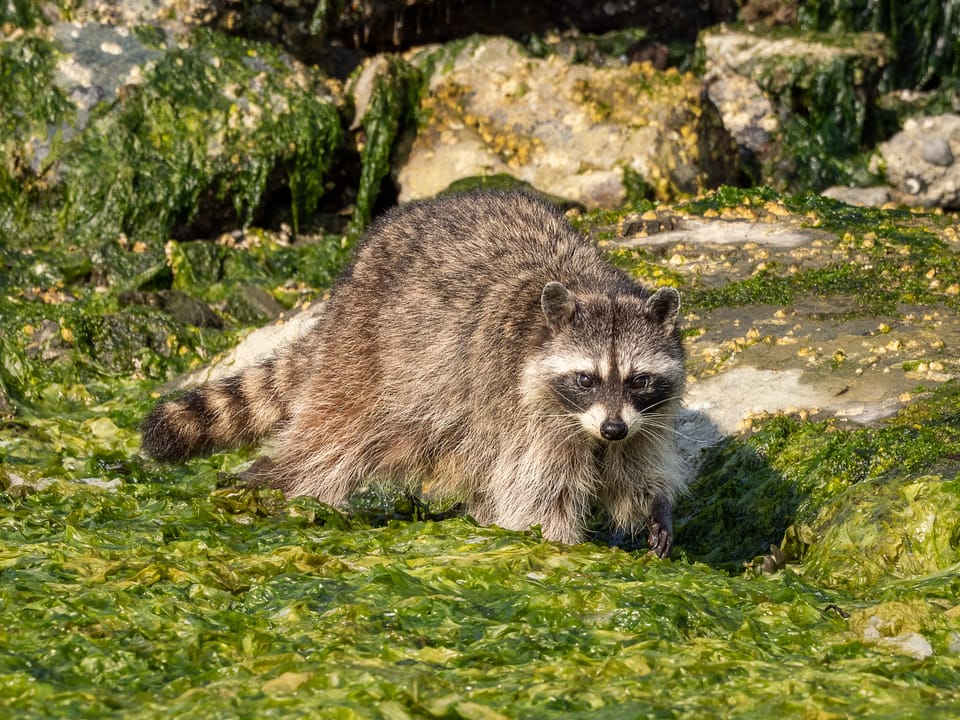EcoWest News, July 22, 2025

Welcome to EcoWest News, a weekly round-up of news and resources that you can put to use in addressing environmental issues and protecting the wild in your community.
Across the West
Manitoba researchers are mapping polar bear denning habitat to inform future wildfire fighting efforts and help protect this threatened species. [Global News]
Alberta’s electricity customers need more options for controlling costs and contributing to grid reliability through demand-side management. Infrastructure-first solutions should be replaced with flexible, customer-focused systems. [Pembina Institute]
Thousands of native marsh plants have been added to Boundary Bay’s Living Dike. Proponents hope the dike can become self-sustaining and are studying wave action and the effectiveness of nature-based solutions to rising sea levels. [Ducks Unlimited]
A fellowship through the Royal Canadian Geographical Society will support Ryan Tidman to share the story of BC’s sea wolves through articles, video, photography, and classroom resources. [Cision]
Across Canada
"In order to successfully get to net zero we need to transition our economy and we're not going to get there without transitioning the bulk of the economy, which is what small and medium-sized businesses represent." It’s not an easy task. [CBC]
Around the World
Large quantities of tire particles end up in our water systems, our lungs, and our brains, and the bigger the vehicle, the more pollution. [Carbon Upfront]
Wildlife connectivity is required during extreme weather. “This includes retrofitting fences, modifying highways, and integrating connectivity into broader land-use planning.” [Conservation Corridor]
A German timber and building material wholesaler says their electric trucks exceed expectations, covering up to 650 kilometres per day with a single scheduled charge stop. Heavy electric vehicles represent 13% of new sales in China compared to 1% in the US. [trans.iNFO, Asia Times]
Energy Production
An oversupply of LNG globally is widely expected and could drive up domestic prices and increase economic vulnerability. It’s not too late to pull back and reduce our risk. [The Narwhal]
BC can continue to cut emissions, despite increases in LNG production and fracking, by focusing on domestic policies such as a provincial adaptation plan, public transportation, older building upgrades, and a provincial zero-waste plan. [Policy Alternatives]
Neither biofuel nor nuclear will solve our energy problems. “Fuel switching is not the answer. Less fuel use, less of everything, is.” [The Tyee]
Making a Difference
A high school senior hopes her mural of a wildlife crossing will inspire people to learn more about crossings. “I want people to have the curiosity I had about wildlife crossings, and then ideally support them being implemented.” [Yellowstone to Yukon Conservation Initiative]
Dark Sky Places around the world are raising awareness about the importance of dark skies and promoting responsible lighting through events, education, and community engagement. [Dark Sky]
Nature’s Wonders
Ants may be tiny, but by working together they excel at transportation, construction, farming, and medicine. [The Conversation]
Photo credit: https://www.flickr.com/photos/apmckinlay/54620253739
EcoFriendly West informs and encourages initiatives that support Western Canada’s natural environment through its online publication and the Nature Companion website/app. Like us on Facebook, follow us on BlueSky, X, and Mastodon, or subscribe by email.

Member discussion